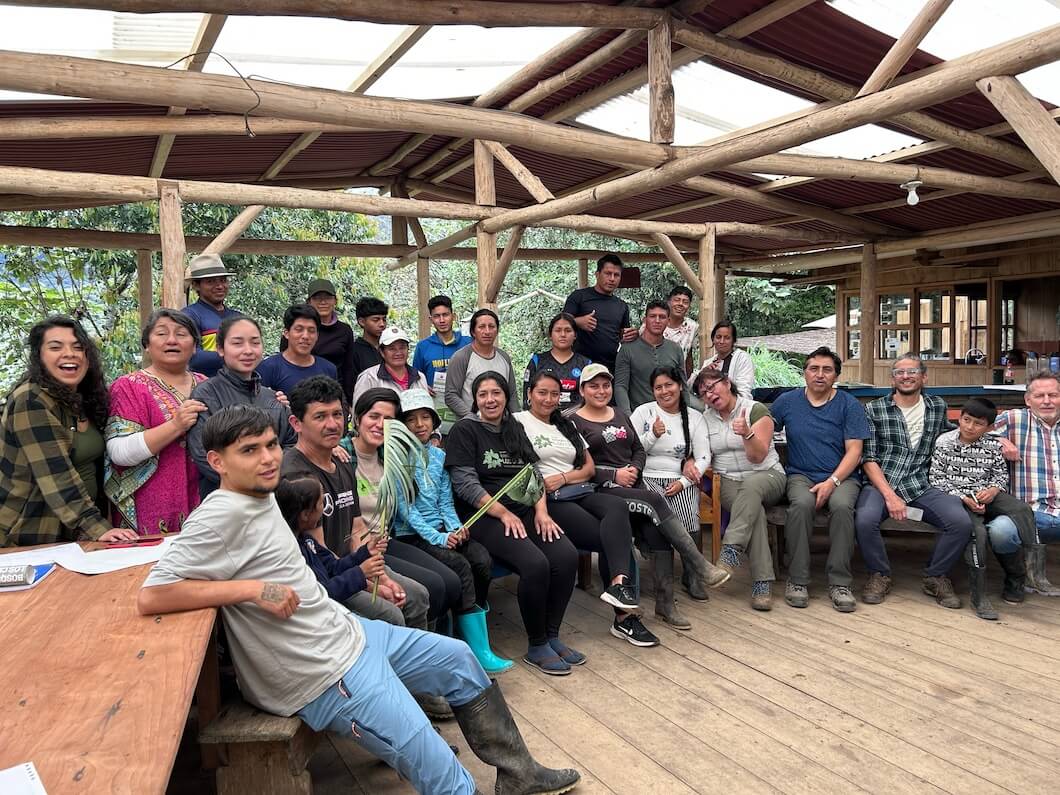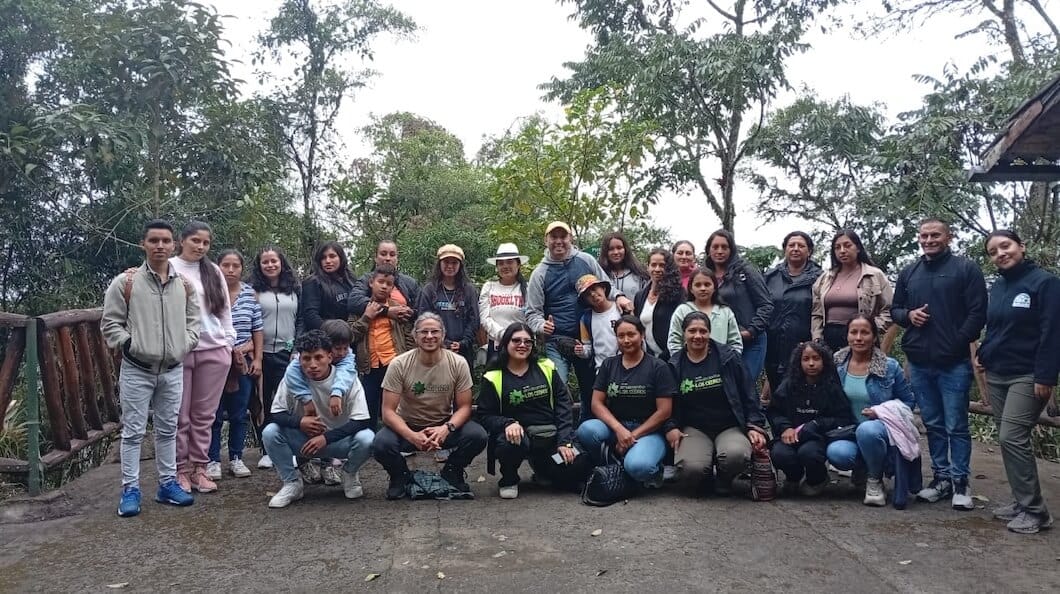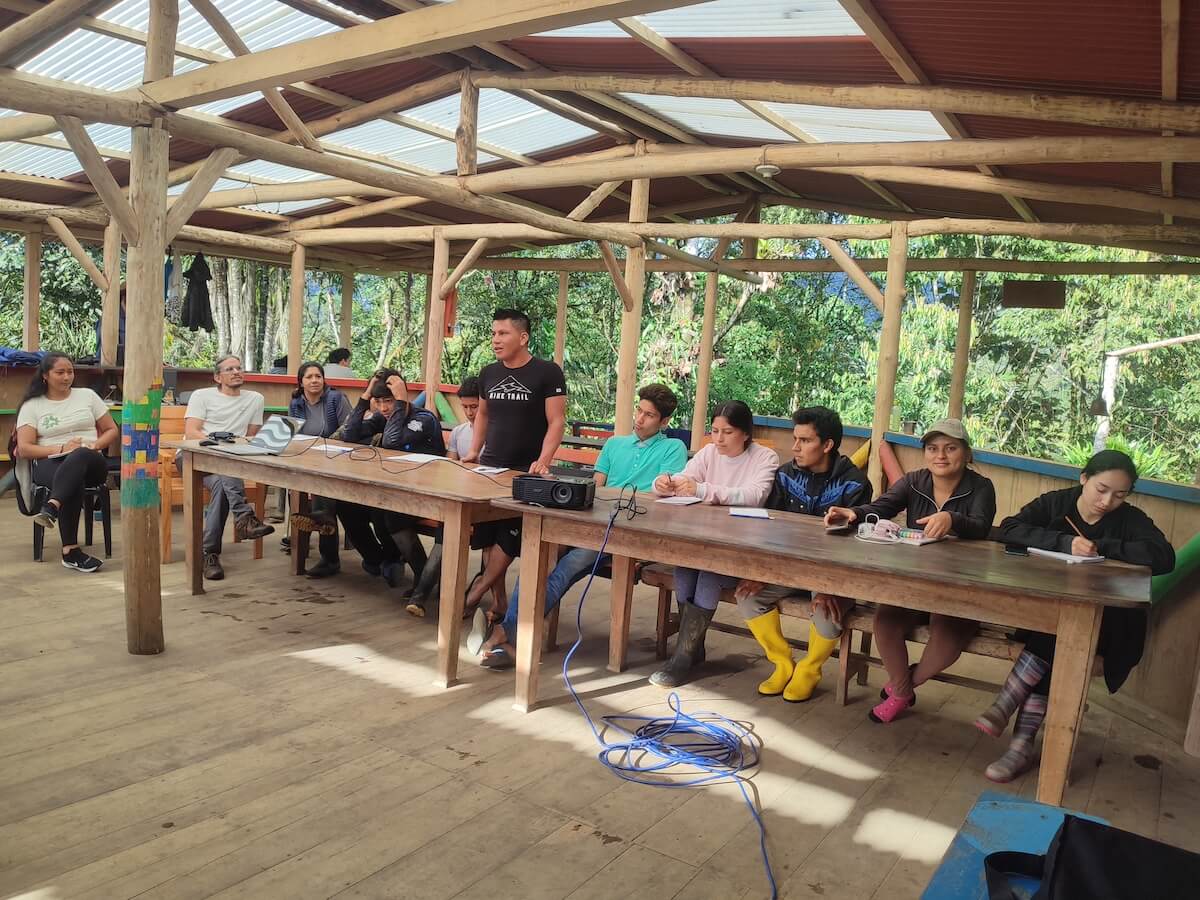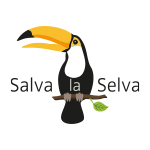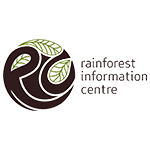by Monserratte Vásquez
Share
In this post, we’d like to share with you a preview of the work we’ve been doing throughout this year to promote conservation and love for the Los Cedros Protected Forest (LCPF), together with the communities of the Manduriacos Valley. Our organization, the Corporation for the Investigation and Protection of the Tropical Andes’ Forests (CIPBAT for name in Spanish), was awarded a small grant from the Critical Ecosystem Partnership Fund (CEPF)* for the period November 2024–November 2025.
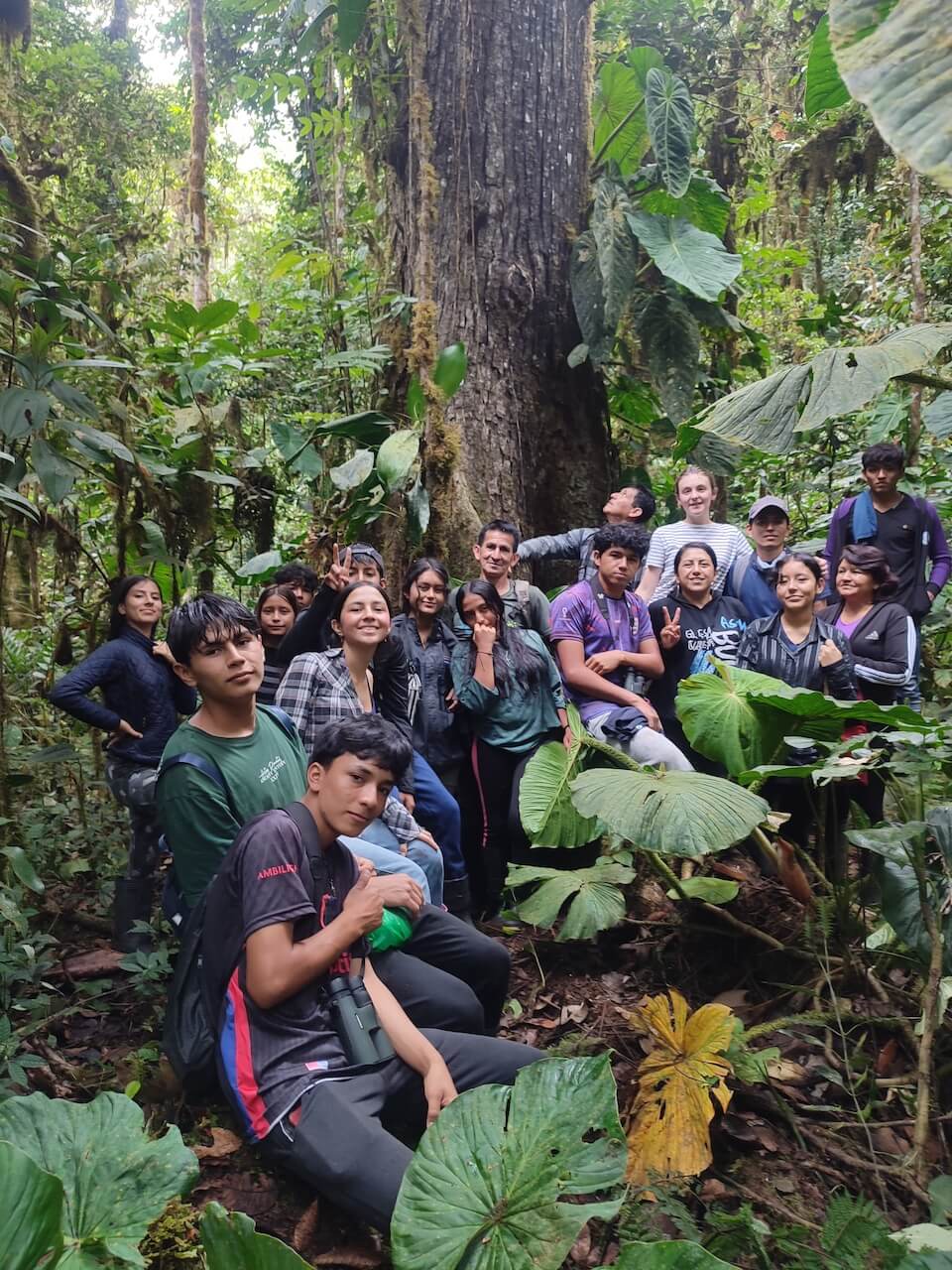
Through this project, we’ve fulfilled our role as established in the LCPF Management Plan 2022–2026, which was developed in a participatory manner by the 10 communities in the surrounding area, local governments, environmental conservation organizations, and the Ministry of Environment. Our goal is focused on raising environmental awareness among children and young people and strengthening local capacities for the co-management and sustainable management of the LCPF (KBA ECU14).
To achieve this, we prioritized four areas that strengthen our commitment to the conservation and protection of the LCPF:
1. Environmental Education
Education by coexisting with the Los Cedros Protected Forest is gradually becoming the heart of our work with children and adolescents in the Manduriacos Valley.
Key to implementing this initiative has been the openness of the Cotacachi Canton Education District, local educational institutions, parents, and, of course, the students who have welcomed our educational proposal with great enthusiasm and motivation.
We’ve sought creative, respectful, and innovative ways to bring forest science closer to students, awaken their sensitivity to nature, and expand their curiosity about the biodiversity and ecological value of the Los Cedros Protected Forest. In this way, the awareness of children and young people will be the spores that spread throughout the territory.
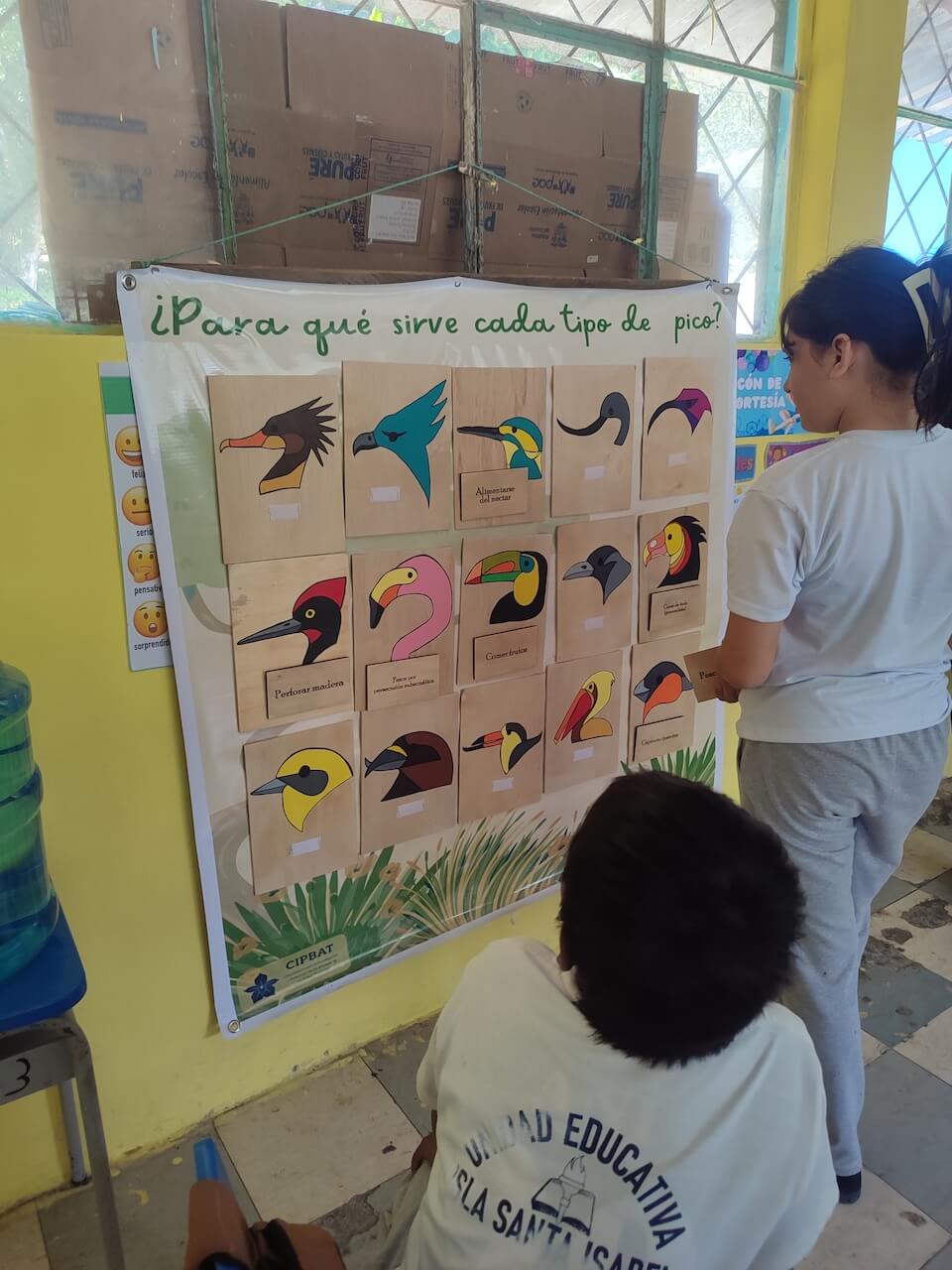
This education program includes 160 students aged 5 to 18. Through a community-based popular education approach, we prioritize horizontal dialogue and each student’s prior knowledge and skills for collective learning. We promote experiential learning that combines theory and practice through lively classes within the LCPF. We developed playful materials that facilitate the exchange of knowledge, stimulate creativity, and bring science to children in a simple and fun way.
2. Forest Ranger Training Program
This is a long-standing program for the Scientific Station, which seeks to return the science produced around the LCFP to local communities. It aims to strengthen their technical capacities and skills for forest management through the transmission and exchange of scientific and field knowledge.
Twenty young people are participating in this course, selected by each of the ten communities in the area surrounding the LCPF, ten of whom have participated in a previous training program. The program’s supported by notable allies and facilitators linked to conservation and biological research.
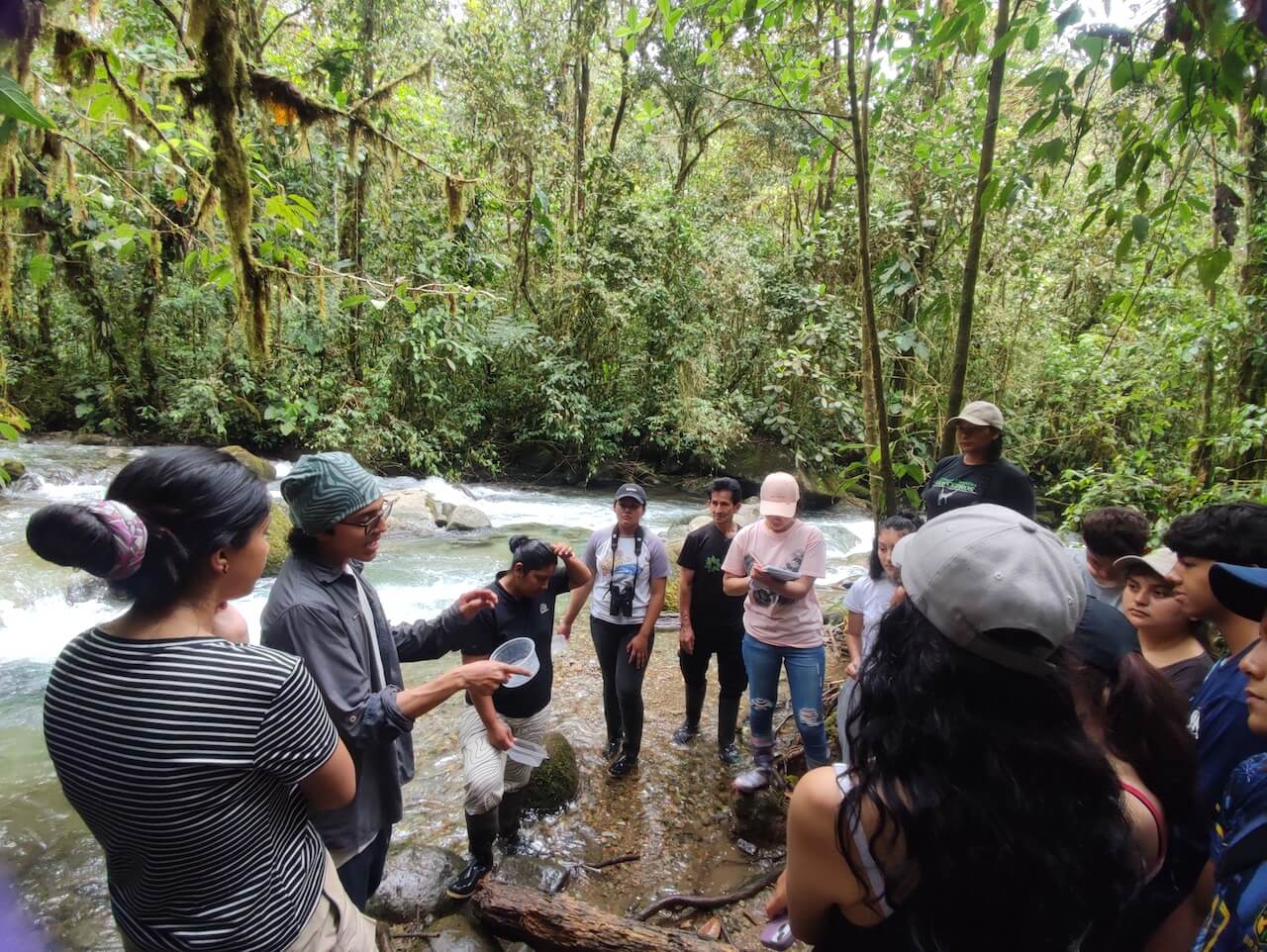
3. Community Environmental Communication Campaign
Communication is a key tool for conservation. In this project, we prioritized community communication from the perspective and voice of the young people of the Manduriacos Valley. To develop the campaign, we invited young people to participate who took part in a training course for community environmental communicators in 2022 .
The campaign aims to be an educational tool on the importance of biodiversity, the forests of the Tropical Andes, and the protection of keystone species in the Los Cedros Protected Forest.
4. Strengthening LCPF Governance
This is crucial issue, on which we focus much of our efforts. The LCFP Management Plan establishes the creation of a co-management committee, made up of the 10 communities and the Los Cedros Scientific Station (LCSS), to be responsible for implementing each of the established strategies.
Through this grant, we provide concrete support for the formation and strengthening of the LCPF Co-management Committee through exchange workshops, capacity building, and community planning.
Over the past few months, our ally networks have grown exceptionally, together with local actors who’ve been participants and beneficiaries of the project, as well as external actors with whom we are building synergies through common objectives around the conservation of the forests of the Tropical Andes and the Chocó bio-region.
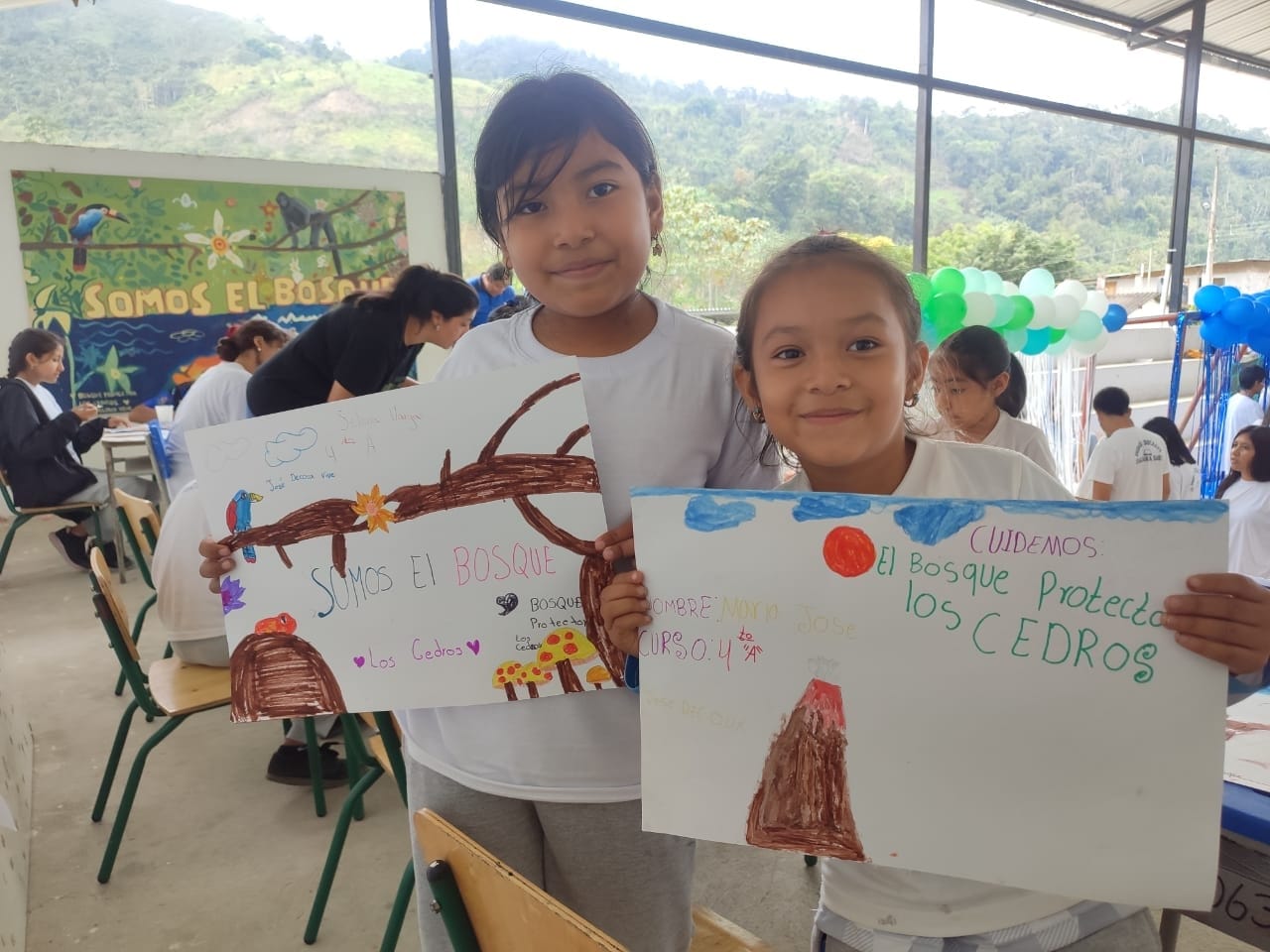
In the following posts, we’ll tell you in detail about the impact through the experiences we’ve had throughout this project, made possible thanks to the support of the Critical Ecosystem Partnership Fund (CEPF), which undoubtedly strengthens and energizes our commitment to the conservation and protection of the LCPF.
*The Critical Ecosystem Partnership Fund is a joint initiative with the French Development Agency, Conservation International, the European Union, the Hans Wilsdorf Foundation, the Global Environment Facility, the Government of Canada, the Government of Japan, and the World Bank. The CEPF program in Ecuador is funded by the German government through KfW. The fundamental goal is to ensure that civil society is committed to conserving biological diversity.
The Latin American Future Foundation (LAFF) serves as the Regional Implementation Team (RIT) for Ecuador. The CEPF program in Ecuador is implemented in permanent coordination with the Ministry of Environment, Water, and Ecological Transition (MAATE).
Related post
Within the framework of the Project “Preparing Civil Society for the Co-Management and conservation of the Los Cedros Protected Forest – KBA ECU 14” financed by the Critical Ecosystem Partnership Fund (CEPF), we held the introductory workshop on the Birds of the BPLC (KBA ECU14) and of Ecuador in March as part of the forest […]
Twenty community members from the Valle de Los Manduriacos, who are training to be forest rangers, participated in the territory and participatory mapping workshop held in March. The workshop consisted of two phases: the first focused on political mapping, led by José Cueva, a member of the CIPBAT team, and the second on social mapping […]
Representatives from the Los Cedros Forest communities visited Yunguilla to learn about sustainable development, organization, and collective hope. Author Jose Cueva
In February, the second phase of the Community Forest Ranger Training Program began, with 10 young adults from last year’s program joined by 10 new young adults from the communities surrounding the Los Cedros Protected Forest, including Brillasol, Magdalena Alto, Chontal, Magdalena Bajo, Pueblo Unido, Paraíso, Río Verde, Villaflora, and Cielo Verde. Each council received […]

